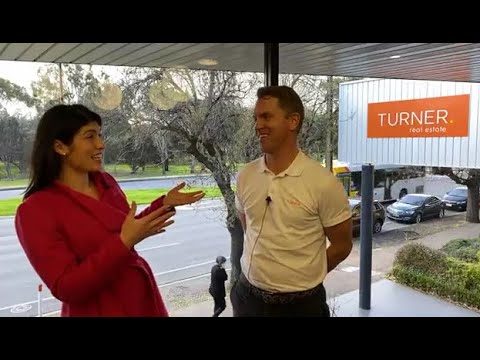So what are your options? The most common are buying a block of vacant land and building your dream home, buy a house and land package, off the plan purchases, or renovating.
So here’s the showdown….
Buying land & sourcing a builder vs House & land packages
Buying land doesn’t mean a vacant block only. It could mean buying land with an older house on it and knocking that down. These sound similar to a house and land package right?
Well, buying vacant land or doing demolition on a house is going to cost a little extra before you start construction. So while it’s a great personal option for the creatives among us with a specific vision, remember that extra cost. Meanwhile, a house and land package is one purchase. This gives you a little extra comfort when you make the one application that’s needed for the whole purchase.
What we mean by applications is your finance. So if you’re buying land we can get a pre-approval for your build when we get the finance for the land purchase. You then have the security that your dream home is on the way.
Buying off the plan vs House & land package
Buying off the plan sounds really similar! But you get a lot less creative freedom. You’re entering a contract with a developer for a house or apartment and paying a 10% deposit when you sign the contract. The rest of the money won’t need to be paid until the project is complete in 8 to 12 months. Because there’s a delay between the contract and the finished house you can’t get finance right away. The best you can do is get a pre-approval. Then it’s up to you to make sure your circumstances don’t change before the property is complete. This is a risk you don’t have with a house and land package. You can get approval at the purchase of the land, so the risk in delay doesn’t exist.
That’s not where the differences end. Your first payment for a house an land package will be for the initial land purchase. This is followed by progress payments to the builder. These are done at every milestone that your build passes.
Buying a brand new house vs Established house
If you’re trying to get into your first home there may be grants available to you. Check with your Rise High mortgage broker to find out what could help you get into your home sooner!
When you’re buying land you can actually make big saving from stamp duty. Stamp duty is calculated from the value of the land, instead of the house and land. We all love some savings.
Renovation and construction loans
So many Australians love where they live and it’s easy to understand why. But what do you do if you want to upgrade but don’t want to leave?
Financing a build is actually quite similar to financing a renovation. There are so many benefits to renovating. No stamp duty if you’ve already purchased, you’re already in the suburb you want to live in, and you can design the house of your dreams. So start with contacting your Rise High mortgage broker here! They can tell you how much you can borrow and what value you can add to the house. You’ll need to know what repayments you can afford. Next you’re getting quotes from your builder or architect for the work you want done. Using those quotes the bank will value your house and make the assessment from both those things together. This could give you more borrowing power!
Everything construction loans finance!
Finance is a big part of making your dreams come true! But how does the finance work?
Construction loans are a bit different to your typical home loan. There are two applications if you’re purchasing land and doing a build. So first things first is of course budgeting, followed by pre-approval. They’re really two parts, settling on the land, then an application for the build and progress payments. Sounds like a lot of work, but we do it all for you! We even manage those progress payments so you don’t have to worry. We’re with you every step of the way until you’re in that new home.
Construction loans are always given on valuation done at the end of the build. This means there is a risk associated. But don’t worry too much, mortgage brokers have a panel of lenders so there are things they can do. It’s also good to get a “subject to finance clause” in your land purchase and build contracts to help mitigate that risk. Having that subject to finance there gives you some protection. This is not something you can do for an off the plan contract. They are unconditional contracts, so there is no changing your mind. If you come up short you’ll need to come up with the extra money or maybe even sell the house or apartment.
Information you need to apply for construction loans
So now we know what construction loans are, how do you get one? The bank will want your Payslip first and foremost. They want your liability position so they can get your borrowing capacity. This can be done before you’ve even found a builder. The other information you need goes by the name of a “build pack” or “finance pack”. The build pack will be the contract for the build price, specifications and inclusions for the house, the design and measurements of the house. All of these things put together, as well as the progress payments, will help the valuer make an assessment of what your house is worth. You don’t necessarily need council approval to get your finance approved.
How do progress payments work?
These payments are simply just payments to the builder for the work they’ve done. When the construction starts there are usually 6 progress payments in a contract. When the builder completes a stage they will send you an invoice. But you can authorise your mortgage broker to handle those invoices. This means you don’t have to worry about staying on top of the payments yourself! Not all brokers manage progress payments but your Rise High mortgage broker does. We just want to make sure the project goes smoothly for you from start to finish. One more thing… we don’t charge a fee for that service. All you need to worry about is packing your belongings and getting ready to move into your new home.
Out of contract costs
Sometimes you want a little extra done to your dream property. Getting outside labour can save you some money. This is an option available to you and it can be counted in your valuation. You’ll just need to get quotes. All of this information gets given to the valuer. They will consider the property, the building contract and all quotes in the valuation. If you change your mind during the build it could affect the value of the house. Because that valuation was made on those quotes, uncompleted works could lower the value and stop the banks from making progress payments. Any quotes you put in you will need to follow through on.
When do you need to make contributions?
Every bank is slightly different. But most banks will require a portion of your deposit when you settle on the land and when the building begins. Some may want the entire deposit at the purchase of the land. If you’re not ready to make that first payment entirely then you’ll need to find a bank that will let you do those split deposits.
Communication touch points for construction loans
There are a lot of people involved in construction loans as you may have noticed. So it can be confusing to know who’s communicating when and why. At the beginning of the process the first point is between you and your broker. Once you’ve located your property, your next communication is with your real estate agent, conveyancer and developer. From there your mortgage broker is in communication with the real estate agent, conveyancer, developer and your builder to get the information for the bank. Once the loan has been approved your mortgage brokers communication is all with you to get authority for progress payments. So really, your mortgage broker is who you go to and we go to everyone else so you don’t have to worry about it!
The end of the build!
When the end is finally here the first thing you probably want to do is move in! But after that you can touch base with your mortgage broker and look at what you want your loan to be. You’ll be paying that loan for a long time so you want it to be doing what’s best for you. Usually a construction loan is interest only, so you may want to switch it to principle and interest. Then you can enjoy your new home!
Construction loans are very different to your everyday home loan. There is a lot of information to be discovered. If you’re still not sure what might be best for you we would love to help you out! Leave your details below and we’ll get back to you.


